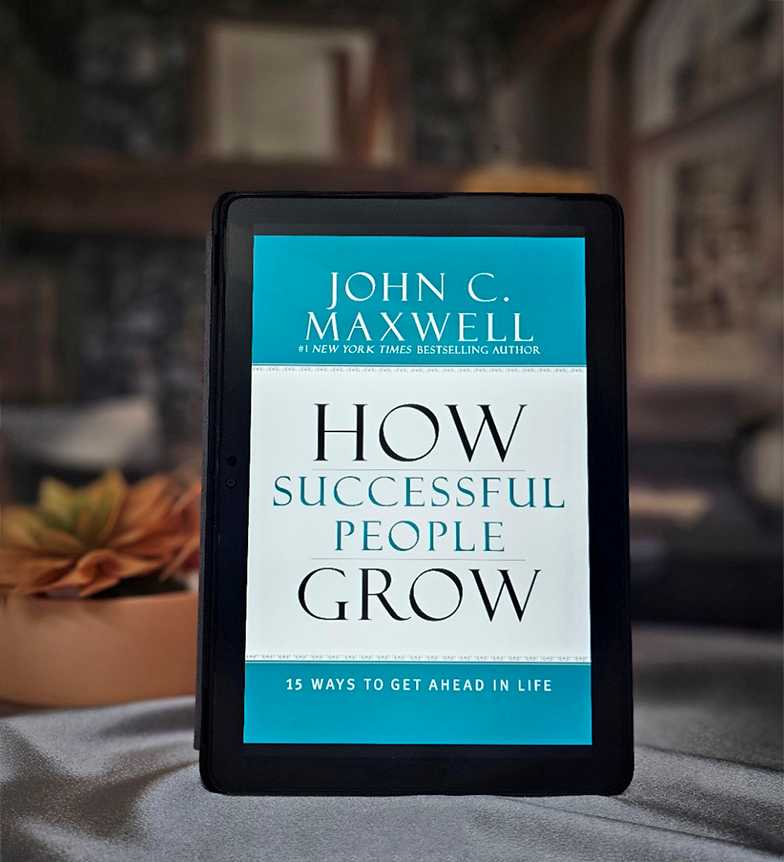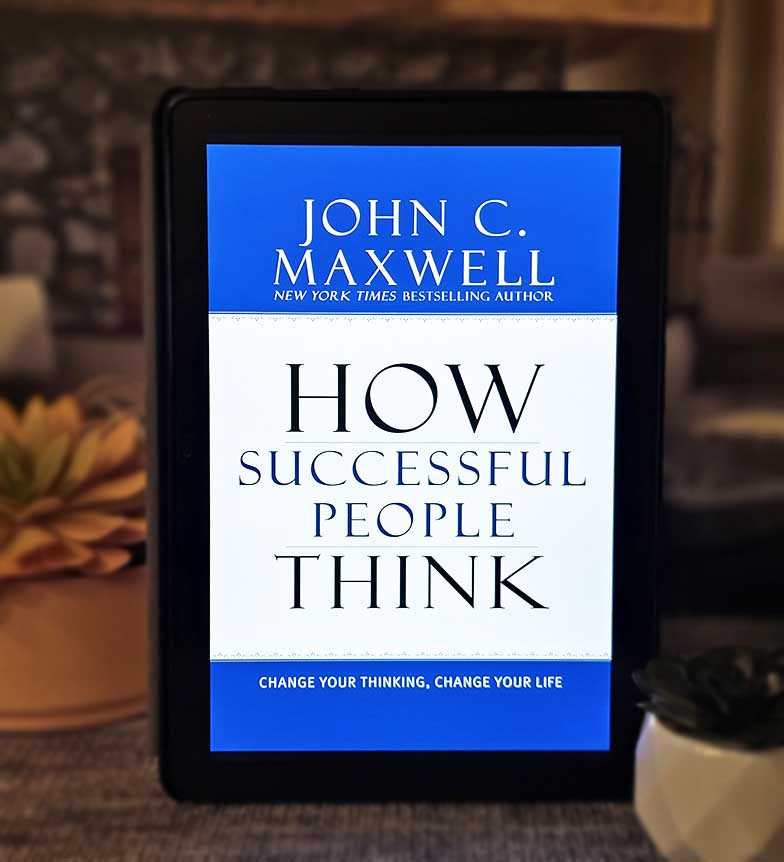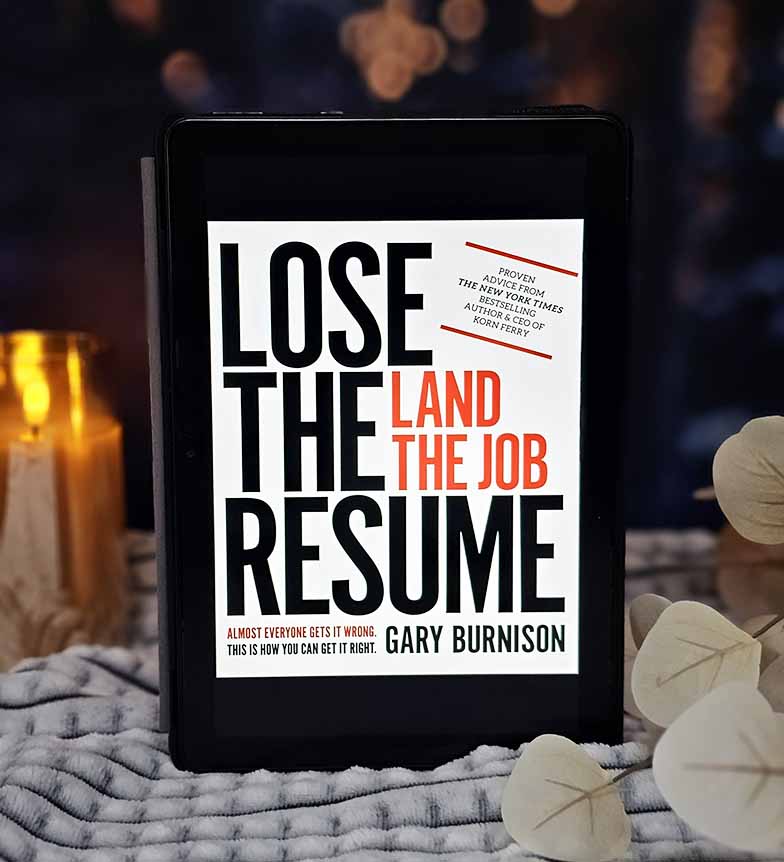
How Successful People Grow
by John C. Maxwell
A practical guide to personal and professional development from leadership expert John C. Maxwell, exploring the habits and mindset that drive continuous growth.
Spoiler Warning
This review may contain spoilers. Read at your own discretion if you haven't finished the book yet.
The Science of Intentional Growth: Maxwell's Blueprint for Success
How Successful People Grow represents John C. Maxwell's distillation of decades of leadership research and personal development expertise into a practical framework for continuous improvement. This isn't just another self-help book filled with platitudes—it's a systematic exploration of how high achievers approach personal growth with intentionality, discipline, and strategic thinking. Maxwell provides readers with a research-backed roadmap for transforming potential into performance.
The Foundation: Growth as Choice, Not Chance
Maxwell's central thesis challenges one of the most pervasive myths about success: that growth happens naturally or by accident. Instead, he demonstrates through extensive research and real-world examples that successful people grow because they make deliberate choices about their development. This foundational insight reframes personal development from something that happens to us into something we actively control.
The book's fifteen principles aren't presented as suggestions but as proven practices that differentiate high achievers from everyone else. Maxwell's approach is systematic, building each concept on solid psychological and behavioral research.
The Fifteen Principles: A Systematic Approach
Intentionality: The Starting Point
Maxwell begins with intentionality because without it, all other growth efforts become random and ineffective. He demonstrates how successful people approach growth with the same strategic thinking they apply to business decisions—with clear goals, measurable outcomes, and accountability systems.
Learning from Failure and Mistakes
Rather than viewing setbacks as obstacles, successful people transform them into learning opportunities. Maxwell provides frameworks for extracting maximum value from difficult experiences while maintaining forward momentum.
Environmental Design
The book explores how successful people carefully curate their environments—physical, social, and intellectual—to support continuous growth. This isn't just about surrounding yourself with positive people; it's about creating systematic conditions for development.
Reflection and Self-Assessment
Maxwell emphasizes the critical role of regular reflection in the growth process. He provides practical tools for honest self-evaluation and tracking progress over time.
Psychological Foundations
Growth Mindset Integration
While not explicitly referencing Carol Dweck's research, Maxwell's principles align perfectly with growth mindset psychology. He demonstrates how successful people view challenges as opportunities and setbacks as information rather than judgments about their abilities.
Behavioral Change Science
The book incorporates insights from behavioral psychology about habit formation, motivation, and sustainable change. Maxwell understands that knowledge without implementation is worthless, so he focuses on creating systems that support consistent action.
Social Learning Theory
Many of the principles involve learning from others—mentors, peers, and even competitors. Maxwell provides frameworks for maximizing these social learning opportunities while avoiding common pitfalls.
Practical Implementation Framework
The Daily Growth Plan
Maxwell doesn't just tell readers to grow; he shows them how to structure growth activities into their daily routines. This includes specific time allocation, priority setting, and progress tracking methods.
Resource Identification and Utilization
The book provides guidance on identifying and leveraging growth resources—books, courses, mentors, experiences—most effectively. Maxwell helps readers become strategic consumers of development opportunities.
Accountability Systems
Recognizing that growth requires external support and pressure, Maxwell outlines various accountability structures that successful people use to maintain their development trajectory.
Strengths of Maxwell's Approach
Research-Based Insights
Unlike many personal development books that rely on anecdotes, Maxwell grounds his principles in observable patterns among successful individuals across various fields and industries.
Actionable Framework
Each principle comes with specific action steps, tools, and implementation strategies. Readers leave with a clear understanding of what to do, not just what to think about.
Scalable Application
The principles work whether you're a recent graduate or a senior executive. Maxwell shows how to adapt the framework to different career stages and life circumstances.
Integration Focus
Rather than presenting isolated techniques, Maxwell demonstrates how all fifteen principles work together as a comprehensive system for continuous development.
Critical Analysis and Limitations
Individual vs. Systemic Factors
While Maxwell's focus on individual responsibility is empowering, the book could benefit from more acknowledgment of systemic barriers that affect growth opportunities for different populations.
Cultural Considerations
The examples and case studies primarily reflect Western business culture. The principles may require adaptation for different cultural contexts or value systems.
Measurement Challenges
Some of the growth areas Maxwell discusses are inherently difficult to quantify, and the book could provide more guidance on measuring progress in subjective areas.
Contemporary Relevance
Digital Age Applications
Though written before the full impact of social media and remote work, Maxwell's principles are particularly relevant for navigating information overload and maintaining focus in a distracted world.
Career Resilience
In an era of rapid career change and economic uncertainty, the book's emphasis on continuous learning and adaptability provides essential guidance for professional resilience.
Leadership Development
The principles apply not just to individual growth but to developing others, making this valuable reading for managers and leaders at any level.
Comparison to Other Development Literature
Beyond Motivation
Unlike purely motivational books, Maxwell provides systematic methods for sustaining growth efforts over time. His approach acknowledges that motivation fluctuates and builds systems that work regardless of emotional state.
Integration with Modern Research
While predating some current research on habit formation and behavioral change, Maxwell's principles align well with findings from authors like James Clear and Charles Duhigg.
Practical vs. Theoretical
Maxwell strikes an effective balance between theoretical understanding and practical application, avoiding both oversimplification and analysis paralysis.
Implementation Strategies for Different Readers
Early Career Professionals
The book provides excellent guidance for establishing growth habits early and building a foundation for long-term success.
Mid-Career Individuals
For those feeling stuck or seeking advancement, Maxwell's principles offer systematic approaches to breaking through plateaus and accelerating development.
Senior Professionals
Even experienced individuals will find value in Maxwell's integration approach and his frameworks for continuous renewal and adaptation.
Entrepreneurs and Business Owners
The principles are particularly relevant for those who must drive their own development while building businesses or managing teams.
Long-Term Impact and Sustainability
Habit Formation
Maxwell's emphasis on systematic approaches helps readers build sustainable growth practices rather than relying on short-term motivation or quick fixes.
Compound Effects
The book effectively demonstrates how consistent application of growth principles creates compound returns over time, making small daily efforts accumulate into significant achievements.
Adaptation and Evolution
The framework is flexible enough to evolve with changing circumstances and goals, making it a lifetime tool rather than a temporary intervention.
Who Should Read This Book
Ideal Candidates
- Professionals seeking systematic approaches to career development
- Leaders responsible for developing others
- Anyone feeling stuck in their personal or professional growth
- Individuals wanting to move beyond motivation to implementation
- Students and early-career professionals establishing development habits
Consider Carefully If
- You prefer purely inspirational rather than systematic approaches
- You're looking for quick fixes rather than sustainable change
- You don't have time to implement systematic growth practices
- You prefer learning through experience rather than structured frameworks
Final Assessment
How Successful People Grow succeeds because it transforms abstract concepts about personal development into concrete, actionable systems. Maxwell's greatest contribution is showing readers that growth isn't mysterious or accidental—it's the result of deliberate choices and consistent practices that anyone can learn and apply.
The book's enduring value lies in its systematic approach and practical focus. Rather than inspiring readers momentarily, it equips them with tools and frameworks they can use for decades. Maxwell has created not just a book but a manual for lifelong development that becomes more valuable with repeated application.
This is essential reading for anyone serious about maximizing their potential and creating sustainable success. The principles are simple enough to understand but profound enough to transform lives when consistently applied.
Rating: 5.0/5 ⭐
Perfect for: Career-focused individuals, aspiring leaders, anyone seeking systematic personal development approaches
Consider carefully if: You prefer inspirational over systematic approaches, or don't have time for structured growth practices
You Might Also Like

How Successful People Think
by John C. Maxwell
John C. Maxwell explores eleven types of thinking that successful people use, offering strategies for developing better mental habits and decision-making skills.

Lose the Resume, Land the Job
by Gary Burnison
A modern approach to job searching that emphasizes relationship-building and personal storytelling over traditional resume-focused strategies.

The Year of Less
by Cait Flanders
A deeply personal memoir about one woman's year-long shopping ban and her journey toward mindful consumption and intentional living.